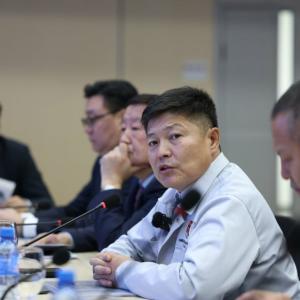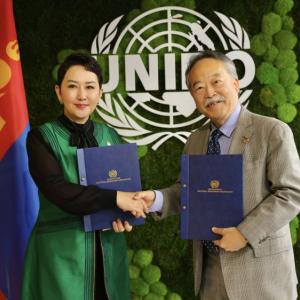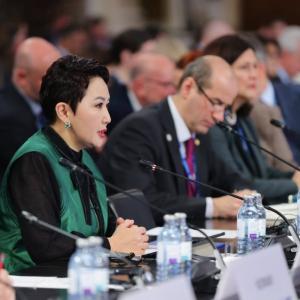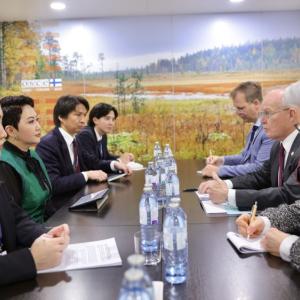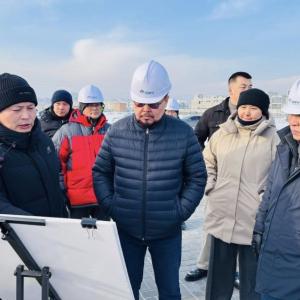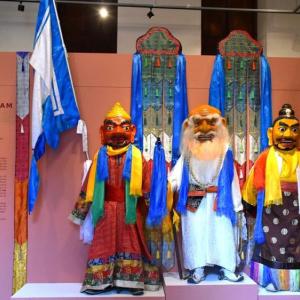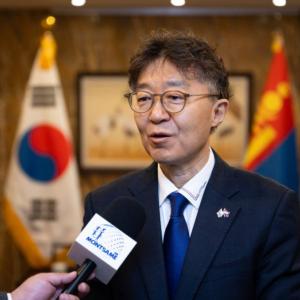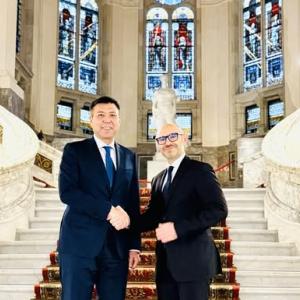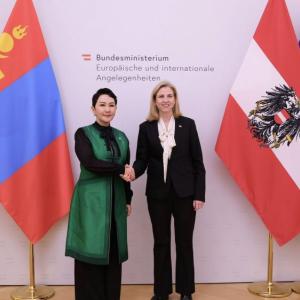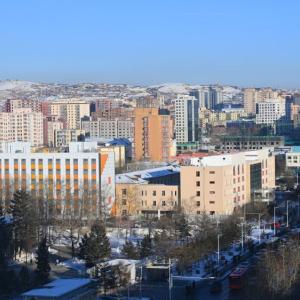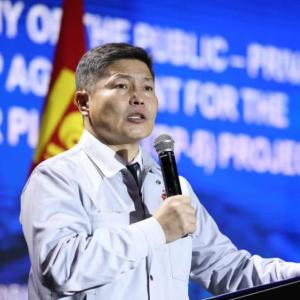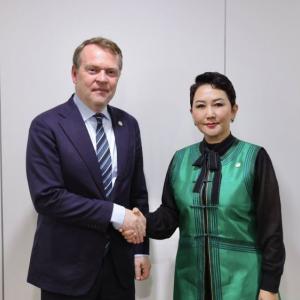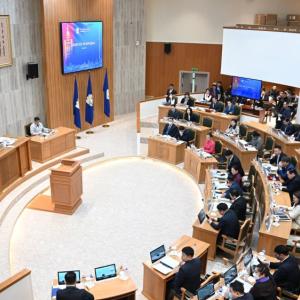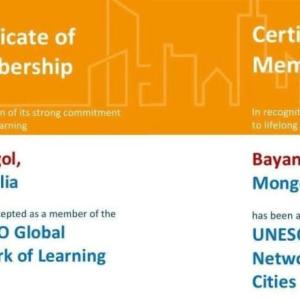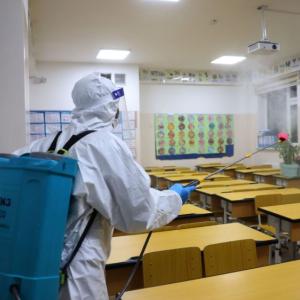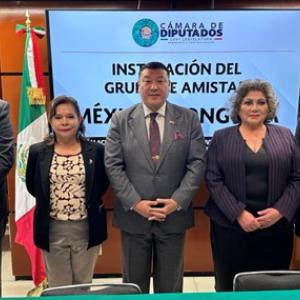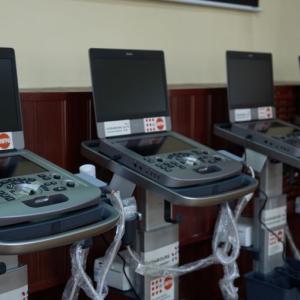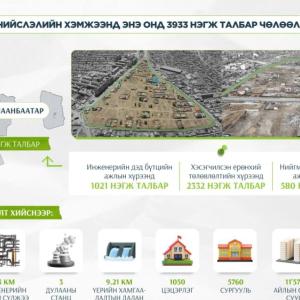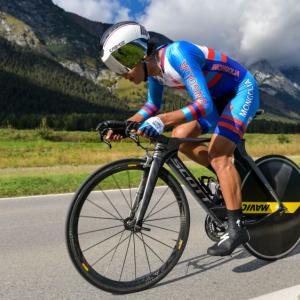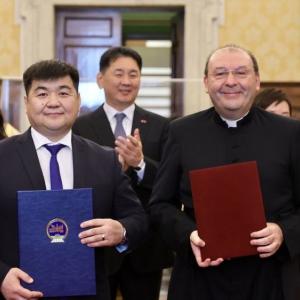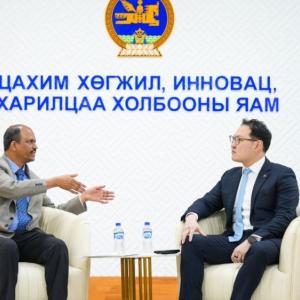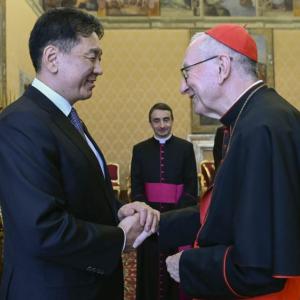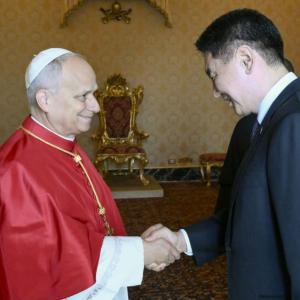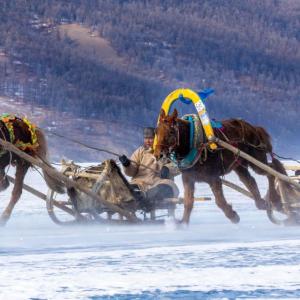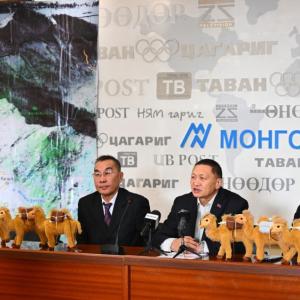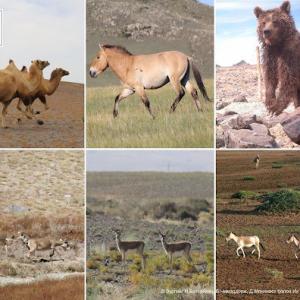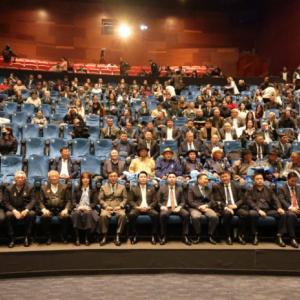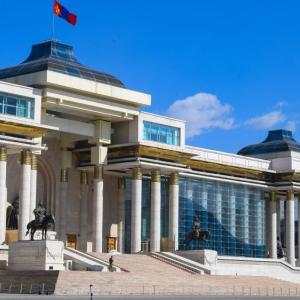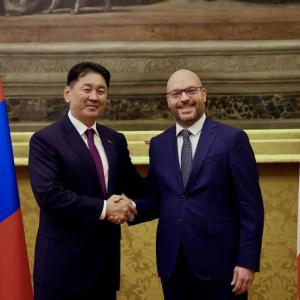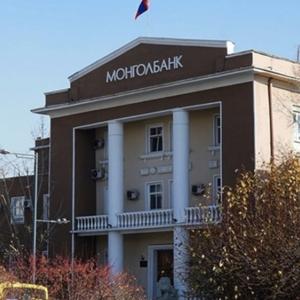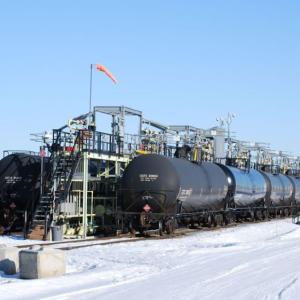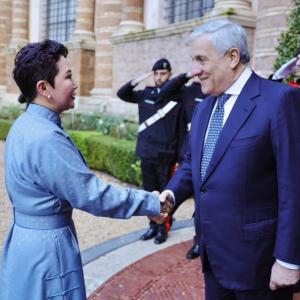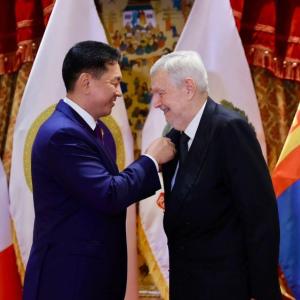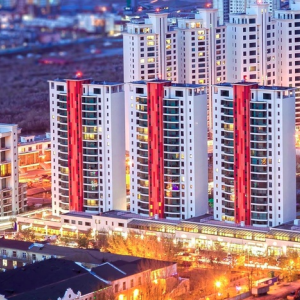E. Orchlon: Our platform will be a starting point for getting everyone involved in the fight against climate change
The Mongol Messenger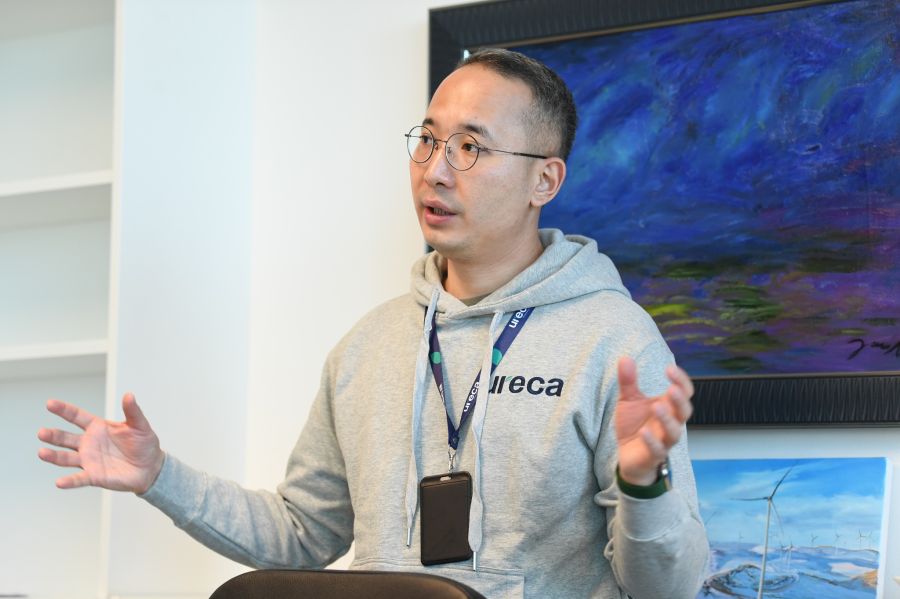
Ulaanbaatar /MONTSAME/. MONTSAME News Agency interviewed Mr. Orchlon Enkhtsetseg who is the Founder and CEO of URECA, a climate-tech startup that is working to make climate investing and carbon offsets more accessible for everyone across the world.
During our interview,
we are going to be using the terms “carbon offset” and “carbon credit” a lot.
Could you please explain these words in simple terms before we move on?
-Sure. So, as you know, as humankind, we've been producing carbon emissions, especially since the industrial age, and that's starting to take a toll on the planet. Put very simplistically, when carbon emissions go up into the atmosphere, they create a layer that makes it very difficult for light to reflect and bounce back and escape Earth. So it is reflected back from this layer and it creates a greenhouse effect and it starts warming up the planet, which has been scientifically proven. Especially over the last 100-200 years, human-induced activities are adversely affec ting our climate. From that perspective, it's going to become increasingly more difficult for this planet to continue to be habitable by human beings. As for the carbon credit, this whole carbon credit mechanism was actually introduced in 1997 during the Kyoto Protocol, and it's a mechanism to try and incentivize people to reduce their emissions. So, as you know, starting with the Kyo to Protocol and the Paris agreement and the subsequent COP meetings, a lot of countries have taken it upon themselves to try and reduce CO2 emissions, and greenhouse gas emissions as well.
Unfortunately, from a technological point of view, it's very difficult, especially for industries such as concrete, mining, airlines, technology, etc. It's very difficult for them to continually and drastically improve their emissions. That's why, for them to be able to bridge that gap in terms of getting to net zero, these companies and these countries are able to purchase carbon offsets from projects from all over the world, especially in developing worlds that are contributing positively to carbon sequestration, to CO2 reduction, et cetera. So these projects, whether it's reforestation or renewable energy projects, if they can prove that as a result of their project, there's a certain amount of CO2 that's being reduced or avoided or eliminated, they can actually get these reductions as certificates, which then they can sell to other companies, especially in the developed worlds. Other companies and other countries that are looking to reduce their CO2 emissions, they're able to sell those credits and the buyers are able to use those credits as offsets against their own carbon footprint activity
Some people say that
carbon offsetting is just an encouragement for businesses to carry on emitting
greenhouse gases rather than address the carbon footprint. How do you see this?
-Last year, there was almost a trillion dollars worth or more than 857,000,000,000 carbon credits sold all over the world. The carbon credits and this whole scheme actually hasn't worked as well as it should have worked the last 20 years. And the reason for that is there isn't much transparency, visibility, and efficiency in the markets that are focused on carbon credits. When you look at who's benefited the most from these carbon credit trading schemes, it actually hasn't been the project developers, but it's been mostly traders and brokers that charged very high commissions on reselling these project developers’ credits to tech and mining companies, etc.
Oftentimes these brokers and traders aren't necessarily concerned about the quality of the credits. They bundle millions of tons of credits and then resell them on a wholesale basis to these large companies that are looking to offset their footprint.
There are a few things wrong with that. Its primary purpose was to efficiently allocate capital to projects that are doing carbon sequestration to make sure that the flow of capital is going to the right projects in terms of reducing overall emissions. So that hasn't been happening and a lot of the value has been lost to the middlemen and the brokers.
So historically, very legitimate projects that are proven to have reduced CO2 or mitigated CO2 and are actually playing a very tangible and concrete part in helping reduce overall emissions. But the price for their carbon credits has been really low. That's why, I think for companies that have made pledges to go carbon neutral, buying carbon credits has become the easy way out for a lot of these companies. Therefore, instead of investing tens and hundreds of millions of dollars into actually decarbonizing their own operations and limiting their carbon footprint, what a lot of companies have done is they've just chosen to buy these cheap credits and then use them as claims to have offset against their footprint. Because of this, as you said, there's been a lot of greenwashing that's been done historically.
We're starting to see a shift in that in the sense that the price of carbon credits is increasing. Five or six years ago, the prices depending on the geography, ranged from maybe 10 cents to USD 10. Now we're seeing prices of USD 50, EUR 100, etc. which is good. And then, I think experts and even the UN, they're saying that there needs to be a price for high-quality carbon credits and for carbon credits to have the impact that it needs to have to contain global warming within 1.5 Celsius degrees. The minimum price for carbon credit needs to be at least a few hundred dollars to be able to have that effect and we agree with that.
That's why through the URECA platform, we're trying to make it much more transparent and accessible for everyone so that there will be efficiency in the market. That is how we can continue to drive up the price of high-quality carbon credits.
The companies use carbon credits, not as the first thing
they do when they want to decarbonize, but actually as a measure of last
resort. So the way we view it is, companies first need to understand their own
carbon footprint, and that's something that a lot of companies are unable to do
as well. So we help companies do that and help them to understand exactly how
much CO2 they're producing. Without knowing your own carbon footprint, it's
very difficult for them to commit to a strategy to decarbonize. Therefore,
companies need to identify and calculate their own emissions baseline and
footprint. Then based on that, they need to put realistic targets that they can
achieve towards net zero. To get to that, they need to invest in to
decarbonizing their operations. Only when there is a gap, that is when they
need to purchase high-quality carbon offsets.
Why is carbon credit
important for Mongolia?
-When we look at the last 60 years or so, the average temperature has increased by 1 Celsius degrees across the globe. In Mongolia, it has increased by 2 Celsius degrees. In other words, Mongolia has historically been twice as impacted by climate change as the rest of the world. I think we all see this every day through desertification and ex[1]treme weather patterns. That affects not just the environment but the economy and livelihoods of people. Because of that, it is even more important for us to be able to do our part. I think there is a lot of opportunity for a country like Mongolia to use carbon offsets to be able to drive positive change against climate change in a way that mobilizes communities not just at the government or business levels.
If we are able to turn carbon financing into a mechanism that incentivizes ordinary people to take climate action and start doing their part, especially in a country like Mongolia, this could become a powerful example to the rest of the world.
Now let us direct our conversation to URECA. When was URECA founded?
-URECA was incorporated in November 2022. But you could say that we started operations in April 2022. The centerpiece of what we are trying to do is we are launching a platform for climate investing not only to corporates, governments, and NGOs but we are opening up the world of climate investing to ordinary people that want to do their part in terms of climate change. We are launching our web and app-based marketplace in January 2023 across Southeast Asia. Once that happens, anyone whether you are a large business, small business, or an ordinary individual that wants to do their part against climate change will be able to invest in carbon credits and carbon offsets, and renewable energy certificates from projects all over the world. For example, we have got projects from Brazil, Nicaragua, Rwanda, Uruguay, South Africa, and Australia that are listing their carbon offsets on our marketplace. Anyone from anywhere will be able to invest in these carbon credits. It has never been done before in terms of providing that level of access to climate investing to everyone. Therefore, our mission is to mobilize and empower ordinary people to start doing their part against climate change through this platform. That is really the most powerful thing that we can do. Climate change is probably the biggest challenge that humanity has ever faced collectively. The smartest people in the world are telling us that in 100 years' time the planet is going to be uninhabitable by humans.
Especially when you start to have kids and think about their future, we are the last generation that can actually do something about it.
As the challenge is so large, we cannot just rely on businesses, governments, and NGOs to stop this climate change. That is why we have to try and mobilize everyone to start doing their own individual bits. This platform will be a starting point for getting everyone involved in the fight against climate change.
You have just
mentioned that instead of relying only on businesses, governments, and NGOs to
stop this climate change, individuals need to start doing their own parts. For
example, where should I start to offset my carbon footprint?
-The first step is to really understand what your carbon footprint looks like. That is why, on our platform, we will have a calculator that lets you understand your footprint and how your behavior and activities impact that, and how you can reduce your carbon footprint in a practical way. It is about how do we take simple measures to be able to at least proactively do our part. The most important thing is to get educated about climate change. If more people start doing that, more people will start to ask for accountability from their elected officials. Then it will become high-up on the agenda for the policymakers. The most important thing that ordinary people can do is to educate and empower themselves to be able to provide their voice in the fight against climate change. Because that act as a catalyst for leaders and businesses in the country to take this in a much more prioritized manner.
You can also invest in these really cool projects from all over the world that are trying to reduce greenhouse gas emissions. We are also introducing social and economic incentives for people to go greener. We are currently discussing with large tech companies that provide mobility services and ride-sharing. One of the partnerships that we are discussing, which would be really cool, is whenever someone chooses to go for an electric taxi option, then they can start accumulating points on a platform and use those points as rewards systems later on. It is about redirecting their choices to greener options. That will be a very interesting and cool feature that will hopefully start rolling up next year.
In terms of helping grassroots communities be more carbon neutral, one of the other things that URECA does is we are able to do Digital MRV. What that means is that we use technology, machine learning, and IoT to be able to do remote accreditation and verification of carbon credits. So for the first time, individual families and households that are switching to renewable energy, solar panels, and small wind turbines will be able to have their carbon credits accredited by us using remote technology. Then they will be able to sell their carbon credits on our platform to start earning extra revenue as a reward for having transitioned into cleaner energy. As an example, we are doing a pilot with The Asia Foundation in Mongolia and already onboarded five families in ger districts and rural regions. The Asia Foundation has helped them replace their coal-burning stoves with electric stoves and heaters and our another partner GerHub NGO provided very economical insulation solutions for their gers to make sure that there is no heat loss. Then all of the electric heaters and ovens are powered by solar panels and battery systems. These families are in the coldest capital in the world. These families are able to transition from coal-burning stoves to fully electric renewable-powered solutions. In our estimates, each family is reducing 10-20 tons of CO2 every year by having switched fully to renewable energy. With tamper-proof smart meters, we are able to plug directly into their systems and then these devices can tell us very precisely how they are using renewable energy for their everyday needs.
We also have a machine-learning program that is able to verify whether the information coming from this device is true or not. And once it is verified, we are able to start producing carbon credits on their behalf that they can sell to interested buyers.
In our estimate, one family in a ger district is able to earn anywhere from USD 2,000-5,000 per year as additional revenue by having sold their carbon credits.
That has been a very inspiring and powerful thing for us. Obviously, we all know that climate change is a big issue. But to be very honest, especially in low-income households in developing countries, it is probably one of the last things that they care about even if they understand it. Because there are so many pressing problems that they have to deal with tomorrow, the day after tomorrow, or in a week such as where are they going to get their food and water from, how are they going to send their kids to school, etc. When you have so much uncertainty in such a short period of time, it is very difficult for you to care about what things look like in 20 years' time. So far, one of the most interesting aspects of climate change has been that you need to have certain types of economic means to care about the climate. That is why, it has been very inspiring for us to see ordinary families now talking about climate change and how to take care of their solar panels better. Also, there is an added benefit to their living environment. There is obviously much less outdoor pollution but also indoor pollution as coal dust etc. is no longer there. It is also much safer for the people. There are many added benefits if we are able to scale this pilot not just in Mongolia but across Asia, Africa, and the Middle East. I think we can really accelerate the clean energy transition at the grassroots level.
Are there any
specific advantages that Mongolia has to offer for doing business in this
space? How does URECA differ from other companies doing similar business in the
world?
-If this works in Mongolia, it can work everywhere. Because
Mongolia is the coldest capital in the world. If we can get families that are
living in gers purely rely on renewable energy, that is something that can be
done anywhere taking into account the fact that Mongolia is the coldest capital
in the world. One of Mongolia’s disadvantages is proven to be one of our
advantages. As our climate and environment are very harsh, if we prove that it
can work here, we can prove that it will work anywhere else in the world.
The other thing is, as I said before, Mongolia is one of the countries that has been affected the most by climate change. Therefore, it is important for us to show that even countries that are as impacted by climate change as Mongolia are also able to start these initiatives using technology. Our mission is to mobilize and empower ordinary people to start doing their part in the fight against climate change. Again, if we can get ordinary people to start transitioning to renewable energy, and clean energy and start planting trees and looking after those trees, etc. it is something that can be very easily replicated across other geographies and regions. A lot of the things that we previously saw as disadvantages are getting proven to be an advantage for us in the fight against climate change.
In an article about
URECA that I have read on the internet, you said that you are aiming to become
the biggest player in the region. Could you elaborate on that? And where do you
hope to see URECA in 5 years?
-Sure. There is no reason for us not to be able to become if not the leading but one of the leading companies and platforms in the space. Because this is a completely new industry right now. What we are trying to do has never been done before. Large companies and organizations, for example, United Nations did not think that it would be technologically possible for individual households to get accredited for carbon credits. Now individual households can get their carbon credit accredited without any paperwork, bureaucracy, and other costs. That has never been done before. How we know that is we tried to find standards on how we calculate the carbon credits but there were no standards as it has never been done before. Now we are working with our partners to create new standards to take into this account. In terms of the platform that provides transparency and accessibility to everyone to be able to do their part in the fight against climate change, again, it has never been there before. We are probably one of the first companies that are working in this space.
Moreover, we also found out that Mongolian engineers are just as competitive as anywhere else from a skillset perspective. That is why we were able to develop everything very fast at very high-quality levels and we have been very competitive in this space.
This whole thing is very new and we are actually one of the pioneers in this field. There is no reason for us not to be optimistic about becoming one of the leaders in the space globally. One of the key things is that URECA is not just a technological company. Half of our team now are software and machine-learning engineers and the other half are sustainability and environment experts. The reason for that is we need to be able to assure and attest to the quality of the projects that are listed on our platform, and all the credits that are being sold and transacted. As I have mentioned, this is a blank sheet of paper. We have got some very exciting technology and we also have some exciting partnerships that will be announced starting in January. Once again, there is no reason for us to become one of the leading companies in the space in the next 5 years. As for next year’s plans, we are opening up our headquarters in Singapore. Then we are doing our launch across Southeast Asia, including Singapore, Malaysia, Indonesia, Vietnam, etc. We are also planning to launch our service also in Japan and India. This is an area that is growing incredibly fast and most importantly we have a very clear vision around creating a platform that empowers as many people as we can to be able to do their part. We also have very interesting value propositions that we can offer to the market. We also have, as I said, a very incredible list of partnerships starting with the Asia Foundation that we are going to be announcing soon and start leveraging to scale our business across the world. Therefore, the next year or two will be very intensive, hopefully, in a good way.
I am really curious
about the name of your company. Is it an acronym or does it have something to
do with “Eureka” from ancient Greece?
-It does sound like “Eureka”. However, it is an acronym. URECA stands for Universal Renewable Energy Certificates Accreditor and the reason for that is we wanted to make renewable energy accessible and universal for all. When we were trying to establish the company, we thought a lot about the name. Initially, we were stuck with UREC which stands for Universal Renewable Energy Certificate. Then we had our “A-ha!” moment where we said we should add an “A” as the last letter so that it can sound like “Eureka”. “Eureka ”itself is a very cool word. The origin of this word is very innovative in the sense that when you discover something or when you get a new idea, you shout “Eureka!”. As you said, it originates from ancient Greece. I am really glad that we found this name.
Can you tell us more
about the tamper-proof smart meters that you mentioned earlier in our interview?
-Of course. This is very interesting. Smart meters have been around for a long time. This smart meter is tamper-proof. If anyone tries to tamper, crack or open it, they will not be able to do that. It is connected to our servers. It has a few sensors and a GPS module in there. It basically is able to monitor whether or not people are actually using renewable energy through solar panels, wind turbines, etc. If people are not using renewable energy, it does not make sense for them to produce carbon credits. That is why we need to make sure that their systems are being put into application and actually reducing greenhouse gas emissions.
A lot of the newer solar panel systems already have the ability to send information to servers. If someone has a newer version of a solar panel system that is able to send information remotely, then people do not need this device. But, in Mongolia, a lot of herders have solar panels which do not send information remotely. Therefore, they can just plug this in and start their fight against climate change.
I think the most important piece is not this device but our machine-learning verification system. We built a proprietary machine-learning artificial intelligence that is able to read the data from this device, solar panels, and other renewable energy systems. This machine-learning AI is able to verify whether or not someone is actually using renewable energy and reducing carbon emissions. That is the centerpiece of our technology. Now we are also expanding not just into renewable energy but into grasslands and pasturelands. Forests and trees sequester a lot of carbon too. But in terms of grasslands and pasturelands, when you look at the planet from a holistic perspective, they are really good carbon sequestration as well. In Mongolia, there are a lot of grasslands and pasture lands. We feel that part is often overlooked. There is a lot of carbon sequestration and reduction that we can do through sustainable use and maintenance of grasslands and pasturelands.
Therefore, we are going to use a combination of satellite and drone technology and our machine-learning systems to start verifying carbon sequestration from grasslands and pasturelands and start producing carbon credits.
That will happen sometime in the second half of next year and our team has already started working on that. It will be very exciting, especially for a country like Mongolia.
Is there anything you
would like to add before we conclude our interview?
-Learning about climate change and educating yourself is the most basic and most important step for ordinary people like you and me can take to do our part in the fight against climate change. Therefore, I would like to ask and advise everyone to invest in themselves to learn more about exactly what is happening in the climate change space. It starts with ourselves and if everyone does that, it will be very profoundly impactful against climate change.
Finally, please watch out for our launch and make sure to download the platform once it is available in January.
Thank you.
 Ulaanbaatar
Ulaanbaatar







